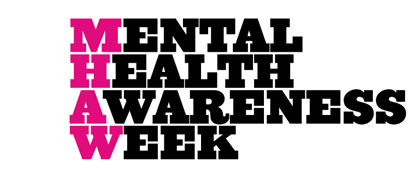By Anthea Innes, Director, Bournemouth University Dementia Institute (BUDI)
The Longitude Prize is a challenge that offers £10m in prize money to help solve one of the greatest issues of our time. The public chooses the cause through a public vote and if a project then goes onto succeed, it wins the prize. Among the six categories this year, three cover health: paralysis, antibiotics and dementia. And it is the last of these that I think should get your vote.
The dementia challenge is to develop intelligent, yet affordable technologies that revolutionise care for people with dementia enabling them to live truly independent lives. The aim is to help people with dementia to live longer and better lives in their own homes.
Dementia is a public health challenge acknowledged by the World Health Organisation as well as by many individual county’s governments, including the UK with the launch of the Dementia Challenge. Dementia costs the UK more than stroke, heart disease and cancer put together, yet is has not been afforded the same research funding. While more has been made of it of late, it wasn’t until recently that it received much public attention.
Recent campaigns by Alzheimer Associations across the world have led to increased attention to the need to not only educate people about the signs and symptoms of dementia, the potential risk reduction strategies that we can employ, but also the need to approach the support of those living with dementia now in a more positive and proactive manner.
The creation of the BUDI orchestra is one way we have created the opportunity for people with dementia to learn (or relearn) musical instruments providing support to those living with dementia and their family carers. Music and singing has a positive effect in people with dementia, with music more ably recalled when there are memory problems, and here people not only come together to sing, but to play instruments and perform to the general public.
Technology already helping
Technology offers many potential opportunities for those living with dementia to live better, for longer and more independently. For example devices that support people with dementia to go out and about in their communities independently giving themselves and their families reassurance that they can be found using satnav technology to locate them, or a panic button if they need help. Other devices such as those that autocut gas supplies on cookers enable people with dementia to cook for longer. And memory devices that are activated when a person with dementia is about to leave the house reminding them to take their keys, purse or other items are also innovative and promote independence.
Equally people who work in a range of public settings, like shops, banks, buses, trains, leisure centres, as well as traditional health and social care settings like hospitals can all learn to adapt and improve their communication skills to enable people with dementia to live more active lives.
This is a critical aspect to consider as people with dementia require those around them to be aware that they might need a little longer to process information, that they may ask the same question again, that they may not understand complex questions and find it easier to have a complex question broken down into bite sized chunks. For example, rather than a supermarket worker saying “that’s £20 please, have you got a club card, and did you use any of your own bags, or did you only use ours?”, they could break the sentence into four chunks and wait for the response after each before moving on the next question.
Lives can be made better now
Small things can make a huge difference to people with dementia and their families as our recent footage from those living with dementia in Dorset demonstrates. Those with dementia and their family clearly articulate that it is possible to live well with dementia and to overcome or compensate for some of the difficulties dementia creates.
An estimated 135m people worldwide will have dementia by 2050. While scientists look for ways of curing or stopping the disease in its tracks – something that remains a considerable way away – it’s clear that supporting and improving the lives of those living with dementia now is just as important.
The need to include people with dementia in society at large is evident in promoting well-being and quality of life. It also offers us the opportunity to promote inter-generational engagement to help future generations understand about dementia, recognise the signs and symptoms and to reduce the fear and stigma that is often evident in general discourse that surrounds dementia.
Dementia is often presented as a health issue; although it can be dealt with in this way it is perhaps more fruitful to consider dementia as a social issue, a societal challenge that affects us all. One in three people over 65 will develop dementia and one in three people will know a person with dementia as a neighbour, friend or family member. Therefore dementia does already touch many, and this will grow as our population ages and people live for longer. Dementia is a true worldwide challenge and definitely deserving of the longitude vote.

Anthea Innes receives funding from a range of sources for her research including the NIHR, Bournemouth University, NHS Wessex, Bournemouth Borough Council, NHS Dorset, Brendon Care, Guild Care, Gracewell, TLC PLC, EU Erasmus Mundus, Alzheimer Society and NHS South of England.
This article was originally published on The Conversation.
Read the original article.
 Join the team at Student Minds, the UK’s student mental health charity! We’re looking for student volunteers to help run a brand new Positive Minds Course at Bournemouth University, providing peer-to-peer support for students experiencing mild depression.
Join the team at Student Minds, the UK’s student mental health charity! We’re looking for student volunteers to help run a brand new Positive Minds Course at Bournemouth University, providing peer-to-peer support for students experiencing mild depression. Bournemouth University
Bournemouth University BU recognises that good mental health is vital to living life fully. To educate and help raise awareness around mental health issues, BU is hosting a wide variety of events between Monday 6 and Friday 10 October.
BU recognises that good mental health is vital to living life fully. To educate and help raise awareness around mental health issues, BU is hosting a wide variety of events between Monday 6 and Friday 10 October.